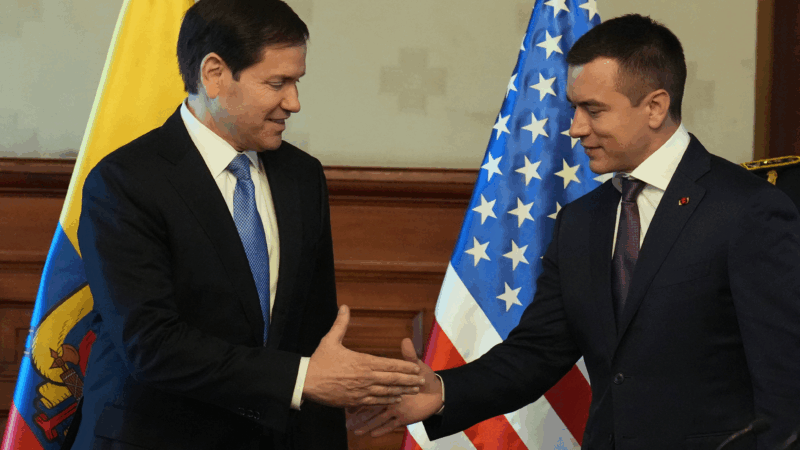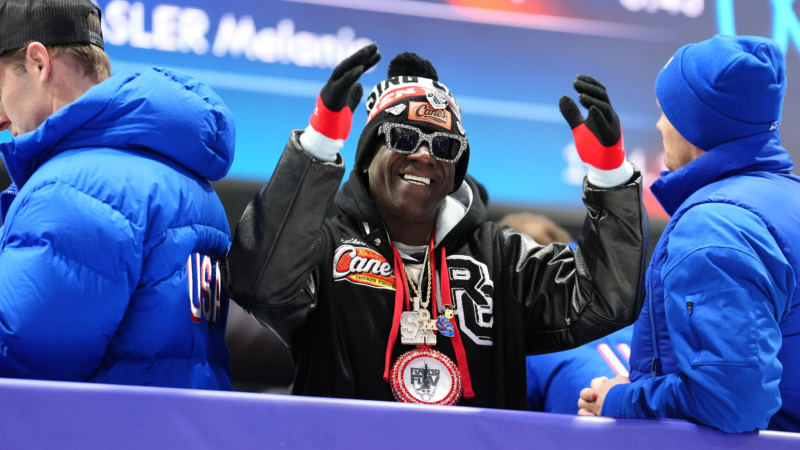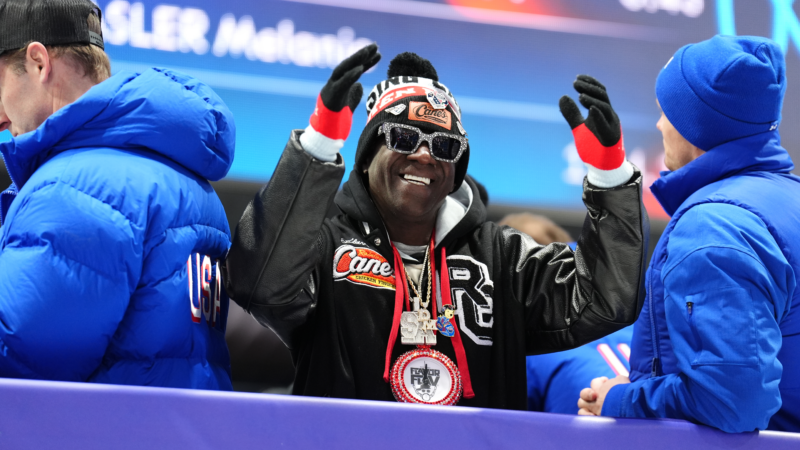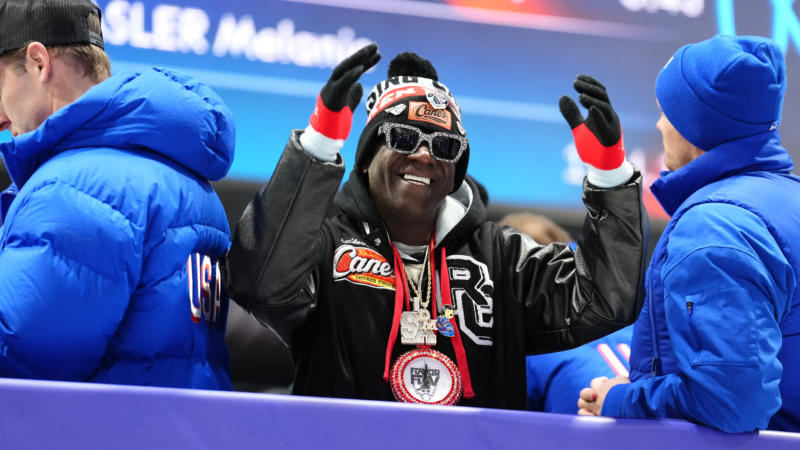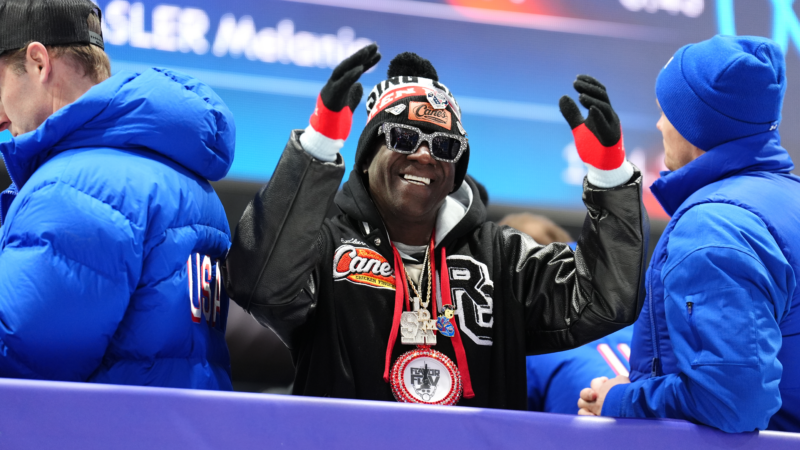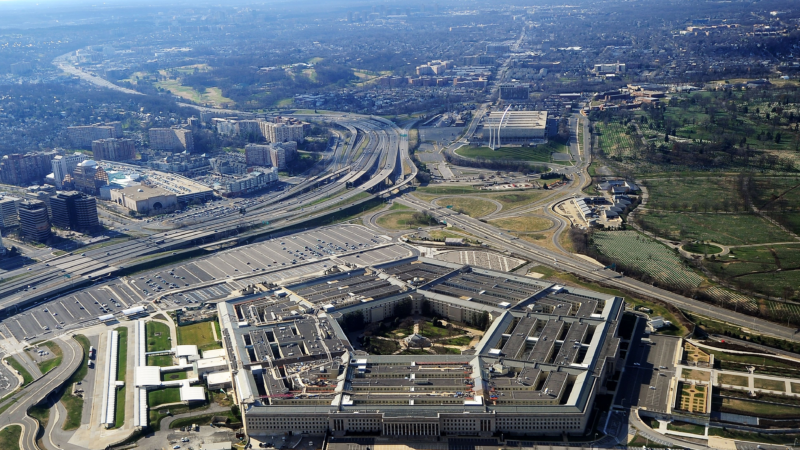The U.S. is designating Ecuador’s largest gangs as terrorists
QUITO, Ecuador — The United States will designate two of Ecuador’s most powerful gangs — Los Lobos and Los Choneros — as foreign terrorist organizations, Secretary of State Marco Rubio announced during a one day visit to the South American country on Thursday.
The move allows Washington to freeze assets, target associates and share intelligence with Ecuador for what Rubio described as “potentially lethal” operations. He pledged $13.5 million in security assistance and $6 million in drone technology to support Ecuador’s fight against organized crime.
“These guys don’t usually go down willingly,” Rubio said, speaking of the two gangs, whom he referred to as “vicious animals.” The new designation “opens up the aperture” for sharing intelligence that Ecuador can use against them.
Rubio met with Ecuador’s President Daniel Noboa, a close ally of the U.S. administration, in the capital, Quito. Noboa has made frequent trips to Washington, D.C., and Mar-a-Lago, including a meeting with President Trump. Reelected earlier this year, Noboa declared a “war” on organized crime as violence in Ecuador surged.
Initially praised for cracking down on traffickers, Noboa’s efforts — including a security deal with U.S. private military contractor Erik Prince — have recently stalled. According to Ecuadorian government data, roughly 70% of the world’s cocaine now transits through the country, shipped from neighboring Colombia and Peru to markets in the U.S., Europe and Asia.
The surge in cartel violence has fueled migration from Ecuador, sending more Ecuadorians to the U.S. border. Noboa has pressed for stronger U.S. and European involvement in his crackdown and wants to hold a referendum to allow foreign military bases in Ecuador for the first time since 2009. Rubio said Washington would consider a base if invited.
Rubio’s stop in Quito comes after high-level meetings in Mexico the day before, where he warned of more U.S. military action against drug traffickers. Earlier this week, the Trump administration struck a Venezuelan boat allegedly carrying narcotics, killing 11 people the U.S. says were members of Tren de Aragua, a Venezuelan gang also designated as a terrorist organization earlier this year.
Venezuelan Interior Minister Diosdado Cabello criticized the strike. “If they carried out the attack, 11 people were killed without a trial. Can that even be legal?” he said on state TV. “Even if it involved drugs, their own laws forbid this.”
But Rubio defended the strike, telling journalists in Mexico: “If you are on a boat full of cocaine or fentanyl headed to the United States, you are an immediate threat. The president has the authority to eliminate imminent threats to the U.S.”
During the trip, Mexico’s Foreign Secretary Juan Ramón de la Fuente emphasized his country’s cooperation with Washington but stressed it must respect sovereignty. He repeatedly cited principles of “self-determination, nonintervention and peaceful resolution of controversies” when asked about U.S. pressure on Venezuela. Despite differences, both sides described the talks as productive, with Mexican President Claudia Sheinbaum joining the discussions.
While the new terrorist designations expand U.S. options in Ecuador, they could complicate matters for civilians. Immigration lawyers say it may help some asylum-seekers prove they are victims of terrorism, but others who paid extortion money to gangs could be penalized for “material support” to terrorist groups.
For now, the U.S. is signaling a tougher regional approach despite questions about the legality of the strike against the alleged Venezuelan drug boat. Rubio described Noboa as a “willing partner” in the drug war and said the Trump administration would not hesitate to continue strikes against groups it views as narco-terrorists.
Flavor Flav is among women’s hockey team fans outraged by presidential snub
The rapper, who also serves as the official "hype man" for multiple U.S. Olympic teams, invited the female hockey players to Las Vegas for a "real celebration."
Flavor Flav is among women’s hockey team fans outraged by presidential snub
The rapper, who also serves as the official "hype man" for multiple U.S. Olympic teams, invited the female hockey players to Las Vegas for a "real celebration."
Flavor Flav is among women’s hockey team fans outraged by presidential snub
The rapper, who also serves as the official "hype man" for multiple U.S. Olympic teams, invited the female hockey players to Las Vegas for a "real celebration."
Flavor Flav is among women’s hockey team fans outraged by presidential snub
The rapper, who also serves as the official "hype man" for multiple U.S. Olympic teams, invited the female hockey players to Las Vegas for a "real celebration."
Flavor Flav is among women’s hockey team fans outraged by presidential snub
The rapper, who also serves as the official "hype man" for multiple U.S. Olympic teams, invited the female hockey players to Las Vegas for a "real celebration."
Hegseth threatens to cancel Anthropic’s $200 million contract over “woke AI” concerns
The company's Claude chatbot is one of the few AI systems cleared for use in classified settings. But a standoff between Anthropic and the Trump administration is putting its government work at risk.

